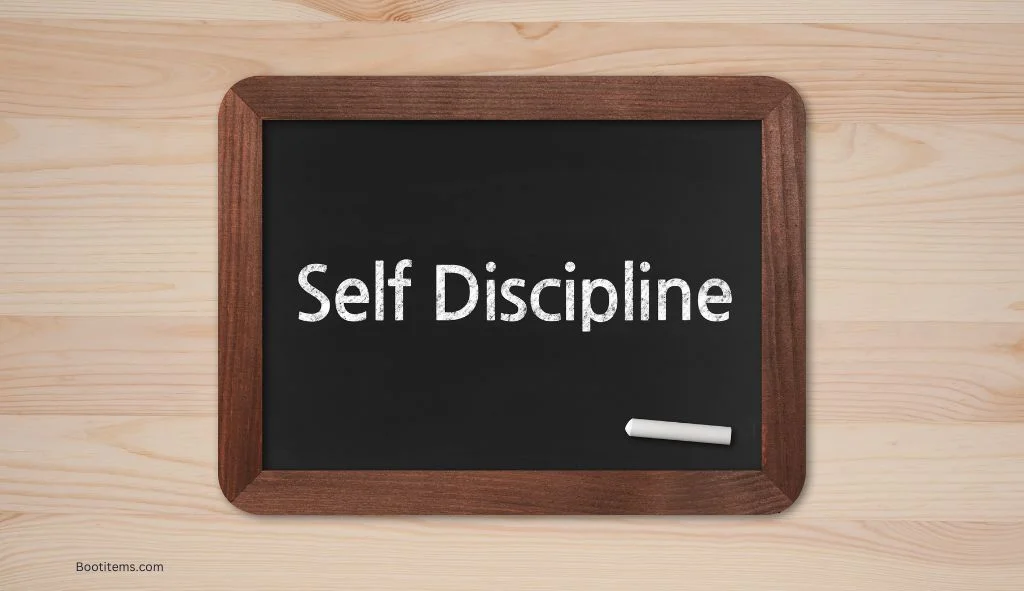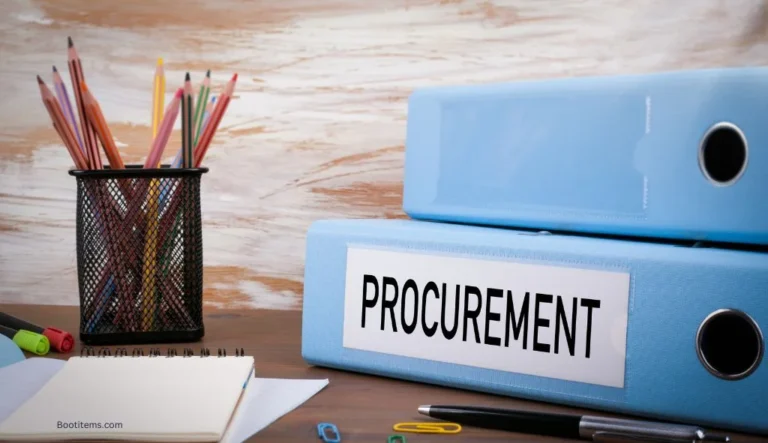Why Is Self-Discipline The Key To Becoming A Good Saver?
Self-discipline is the foundation of good saving habits because it helps you control spending impulses, maintain consistent saving routines, and prioritize long-term financial goals over immediate gratification.
Understanding Self-Discipline in Financial Management
Self-discipline in financial management refers to your ability to control impulses and manage your finances responsibly. It plays a crucial role in personal finance by allowing you to prioritize your financial goals over short-term desires. When you practice financial self-discipline, you develop the ability to make decisions that benefit your future self rather than giving in to immediate wants.
The Definition of Financial Self-Discipline
Financial self-discipline is the practice of making consistent, intentional choices about your money that align with your long-term goals. It involves creating boundaries around your spending, developing regular saving habits, and making financial decisions based on careful consideration rather than emotional impulses.
This skill enables you to delay gratification—choosing to forgo immediate pleasures for greater future rewards. In financial terms, this might mean skipping daily coffee shop visits to build an emergency fund or driving an older car a few more years to save for a home down payment.
Why Self-Discipline Matters for Your Financial Health
Self-discipline forms the backbone of financial success because it helps you avoid impulsive decisions that can harm your financial health. Whether it’s an unplanned shopping spree, frequent dining out, or giving in to sale temptations, these small choices add up over time and can derail your financial plans.
Beyond avoiding negative behaviors, self-discipline empowers you to take positive financial actions like saving regularly, sticking to a budget, and investing for the future. It’s the key to building good financial habits that lead to long-term success. By practicing self-control, you make thoughtful decisions that align with your priorities and help you build wealth over time.
Financial self-discipline also creates a sense of control over your money. Rather than feeling that your finances control you, you gain confidence in your ability to manage resources effectively and work toward your goals.
The Psychology Behind Saving Money
Understanding the psychological aspects of saving money can help you develop better financial habits. Our brains are wired in ways that can either support or undermine our saving efforts, and recognizing these patterns is the first step to overcoming financial challenges.
The Marshmallow Test and Delayed Gratification
The famous “marshmallow test” conducted by psychologist Walter Mischel in the 1970s demonstrated the power of delayed gratification. In this experiment, children were offered a choice: they could have one marshmallow immediately or wait 15 minutes and receive two marshmallows. The researchers found that children who could delay gratification tended to have better life outcomes, including higher SAT scores and better educational achievements.
This same principle applies to financial management. The ability to delay gratification—to choose saving over immediate spending—is fundamental to building wealth. When you can resist the urge to buy something now in favor of saving for something more valuable later, you’re exercising the same mental muscle that helped those successful children earn their second marshmallow.
Short-Term vs. Long-Term Thinking
Our brains have two competing systems that influence financial decisions. The emotional, impulsive part of our brain seeks immediate rewards and drives spending behavior. The logical, rational part helps us plan for the future and supports saving behavior.
Self-discipline helps strengthen the rational system, allowing you to make decisions based on long-term benefits rather than short-term pleasures. When you train yourself to think about future consequences before making financial decisions, you’re more likely to save money and avoid unnecessary expenses.
This shift from short-term to long-term thinking doesn’t happen overnight. It requires consistent practice and reinforcement. Each time you choose to save rather than spend impulsively, you’re reinforcing neural pathways that make future self-discipline easier.
Overcoming Psychological Barriers to Saving
Several psychological barriers can make saving difficult:
- Present bias: The tendency to value immediate rewards more highly than future benefits
- Loss aversion: The pain of giving up money (by saving it) feels stronger than the pleasure of future gains
- Status anxiety: The pressure to keep up with others’ spending habits
- Optimism bias: The belief that future financial problems won’t affect you
Self-discipline helps overcome these barriers by creating structured habits that bypass these psychological traps. By automating savings, creating clear financial goals, and developing spending awareness, you can work with your psychology rather than against it.
How Self-Discipline Shapes Saving Habits
Self-discipline directly influences how you handle money on a daily basis. It helps you think carefully about your spending and prioritize saving over immediate purchases. This power to resist quick purchases helps you build strong saving habits that keep you on track to reach your financial goals.
Making Consistent Saving a Priority
Consistency is the cornerstone of successful saving. Self-discipline helps you establish a regular saving routine that becomes as natural as any other daily habit. When you’re disciplined about saving, you don’t wait to see what’s left at the end of the month—you make saving your first financial priority.
The “pay yourself first” approach exemplifies this principle. By automatically transferring a portion of each paycheck to savings before you have a chance to spend it, you remove the need for willpower in the moment. This consistent practice builds your savings steadily over time without requiring constant decision-making.
Many successful savers treat their savings contributions as non-negotiable, similar to rent or utility payments. This mental accounting helps ensure that saving happens regardless of other financial pressures or temptations.
Controlling Impulse Spending
Impulse spending is one of the biggest obstacles to saving money. Self-discipline acts as your shield against unplanned purchases that can drain your bank account and prevent you from reaching your financial goals.
Disciplined savers develop strategies to manage impulse spending:
- Implementing a waiting period before making non-essential purchases
- Creating shopping lists and sticking to them
- Avoiding shopping as entertainment
- Unsubscribing from retail emails that trigger spending urges
Each time you successfully resist an impulse purchase, you strengthen your self-discipline muscle. Over time, saying “no” to unnecessary spending becomes easier and more automatic.
Building a Sustainable Relationship with Money
Self-discipline helps you develop a healthy, sustainable relationship with money. Rather than viewing money as something to be spent as soon as it arrives, disciplined savers see money as a tool for creating future security and opportunities.
This perspective shift changes how you interact with money on a daily basis. You begin to evaluate purchases based on their alignment with your values and long-term goals rather than their ability to provide immediate gratification. You become more intentional about where your money goes and more aware of the trade-offs involved in each financial decision.
A sustainable relationship with money also means finding balance. Self-discipline doesn’t require extreme frugality or depriving yourself of all pleasures. Instead, it means making conscious choices about what’s worth spending on and what’s better saved for the future.
Practical Benefits of Financial Self-Discipline
Self-discipline in financial management offers numerous practical benefits that extend beyond simply accumulating savings. These advantages impact both your current financial situation and your long-term financial health.
Building Emergency Funds and Financial Security
One of the most immediate benefits of financial self-discipline is the ability to build an emergency fund. This financial buffer—typically recommended to cover 3-6 months of essential expenses—provides protection against unexpected events like medical emergencies, car repairs, or job loss.
Having this safety net reduces financial stress and prevents minor setbacks from becoming major financial crises. Without an emergency fund, unexpected expenses often lead to debt, creating a cycle that’s difficult to escape. Self-discipline helps you prioritize this essential financial protection even when more exciting spending opportunities arise.
Beyond emergency funds, consistent saving creates broader financial security. As your savings grow, you gain options and flexibility. You can take advantage of opportunities, weather economic downturns, and make decisions based on what’s best for you rather than what’s financially necessary in the moment.
Achieving Long-Term Financial Goals
Financial self-discipline is essential for achieving significant long-term goals like buying a home, funding education, or retiring comfortably. These major milestones typically require substantial savings accumulated over extended periods.
Disciplined savers set clear, specific goals with defined timelines and amounts. This clarity helps maintain focus and motivation during the saving process. Rather than seeing saving as deprivation, they view it as progress toward meaningful objectives.
The power of compound interest amplifies the impact of self-discipline. When you save and invest consistently over time, your money grows exponentially. The earlier you start saving, the more dramatic this effect becomes. This mathematical advantage rewards those who exercise self-discipline early and consistently.
Reducing Financial Stress and Improving Well-being
Financial stress is a significant source of anxiety for many people. Self-discipline helps reduce this stress by creating greater financial stability and control. When you know you’re living within your means and building savings, financial worries diminish.
This reduction in stress has ripple effects throughout your life. Research has linked financial well-being to better physical health, improved relationships, and greater overall life satisfaction. By practicing financial self-discipline, you’re investing not just in your financial future but in your holistic well-being.
Self-discipline also builds confidence in your ability to handle financial challenges. Each time you successfully save for a goal or navigate a financial setback without derailing your progress, you strengthen your financial self-efficacy—your belief in your ability to manage money effectively.
Developing Financial Self-Discipline: Practical Strategies
Building financial self-discipline is a skill that anyone can develop with the right strategies and consistent practice. These practical approaches can help you strengthen your saving habits and achieve greater financial control.
Creating a Budget and Tracking Expenses
A budget serves as the foundation for financial self-discipline. It provides a clear plan for your money and helps you align your spending with your priorities. An effective budget should:
- Account for all income sources
- Include all regular expenses
- Allocate funds for savings goals
- Allow some flexibility for discretionary spending
The process of creating a budget increases awareness of your spending patterns and helps identify areas where you can reduce expenses to increase savings. Many successful savers recommend tracking expenses for at least a month before creating a budget to ensure it reflects your actual spending habits.
Regular expense tracking maintains this awareness and helps you stay accountable to your budget. Modern budgeting apps make this process simpler by automatically categorizing transactions and providing visual representations of your spending patterns.
Automating Savings and Financial Decisions
Automation is one of the most powerful tools for building financial self-discipline because it removes the need for willpower in the moment. By setting up automatic transfers to savings accounts, retirement funds, and other investment vehicles, you ensure consistent progress toward your financial goals.
This “set it and forget it” approach works because it changes the default action from spending to saving. Rather than having to actively decide to save each month, you only need to make the decision once when setting up the automation. The money is moved to savings before you have a chance to spend it.
Automation can extend beyond basic savings to include:
- Automatic bill payments to avoid late fees
- Regular debt payments above the minimum required
- Automatic increases in retirement contributions when you receive raises
- Scheduled transfers to specific goal-based savings accounts
Setting Clear Financial Goals
Specific, measurable financial goals provide direction and motivation for your saving efforts. Without clear goals, it’s easy to lose focus and give in to spending temptations. Effective financial goals should be:
- Specific: Define exactly what you’re saving for
- Measurable: Include a specific dollar amount
- Time-bound: Set a target date for achievement
- Realistic: Be challenging but attainable
- Meaningful: Connect to your values and priorities
Breaking larger goals into smaller milestones helps maintain motivation throughout the saving process. Celebrating these smaller achievements reinforces your self-discipline and keeps you engaged with your financial plan.
Regularly reviewing and updating your goals ensures they remain relevant to your changing life circumstances and priorities. This ongoing process helps maintain the connection between your daily financial decisions and your long-term aspirations.

Overcoming Challenges to Financial Self-Discipline
Even with the best intentions, maintaining financial self-discipline can be challenging. Understanding common obstacles and developing strategies to overcome them is essential for long-term success.
Dealing with Financial Setbacks
Financial setbacks are inevitable, whether from unexpected expenses, income reductions, or economic downturns. These challenges can test your self-discipline and potentially derail your saving progress if not handled effectively.
The key to navigating setbacks is maintaining perspective and adapting your approach rather than abandoning it entirely. This might involve:
- Temporarily reducing saving rates during periods of financial strain
- Using emergency funds as intended while creating a plan to replenish them
- Adjusting timelines for financial goals rather than giving up on them
- Learning from setbacks to strengthen future financial planning
Resilience in the face of setbacks often distinguishes successful savers from those who struggle to build wealth. Each challenge you overcome strengthens your financial self-discipline and prepares you for future obstacles.
Managing Social Pressure and Lifestyle Inflation
Social pressure can significantly undermine financial self-discipline. The desire to keep up with friends’ spending habits or maintain a certain lifestyle can lead to choices that compromise your saving goals.
Lifestyle inflation—increasing your spending as your income rises—is particularly dangerous to long-term saving success. Without self-discipline, raises and bonuses quickly get absorbed into a more expensive lifestyle rather than accelerating progress toward financial goals.
Strategies for managing these pressures include:
- Clearly defining your financial values and priorities
- Finding friends who share similar financial perspectives
- Suggesting lower-cost social activities
- Practicing gratitude for what you already have
- Allocating a portion of income increases to savings before adjusting your lifestyle
Building Sustainable Habits for Long-Term Success
Financial self-discipline isn’t about perfect behavior—it’s about developing sustainable habits that you can maintain over the long term. Overly restrictive approaches often lead to “financial burnout” and eventual abandonment of saving efforts.
Creating a sustainable approach to financial self-discipline involves:
- Building flexibility into your financial plan
- Including some room for enjoyment and small indulgences
- Focusing on progress rather than perfection
- Developing systems that make saving easier than spending
- Regularly reviewing and adjusting your approach as needed
The most successful savers find ways to make financial self-discipline feel less like deprivation and more like a positive choice aligned with their values and goals. This mindset shift transforms saving from something you “should” do into something you want to do because it supports the life you’re building.
The Connection Between Self-Discipline and Financial Education
Financial self-discipline works best when paired with solid financial knowledge. Understanding how money works enhances your ability to make disciplined choices and increases the effectiveness of your saving efforts.
Expanding Your Financial Knowledge
Continuous learning about personal finance strengthens your financial self-discipline by helping you understand the “why” behind recommended practices. When you comprehend concepts like compound interest, tax-advantaged accounts, and investment diversification, you’re more motivated to make disciplined choices that leverage these principles.
Financial education also helps you distinguish between good and bad financial advice. With a solid knowledge foundation, you can evaluate recommendations critically and avoid being swayed by marketing messages or get-rich-quick schemes that undermine disciplined saving.
Resources for expanding your financial knowledge include:
- Personal finance books and podcasts
- Reputable financial websites and blogs
- Financial literacy courses
- Consultations with financial professionals
Making Informed Financial Decisions
Financial knowledge combined with self-discipline leads to better decision-making. Rather than making choices based on emotion or limited information, you can evaluate options thoroughly and select those that best support your long-term financial goals.
This informed approach is particularly valuable when facing complex financial decisions like:
- Choosing between debt repayment and investing
- Selecting appropriate insurance coverage
- Deciding on housing options
- Planning for retirement
- Evaluating investment opportunities
The combination of knowledge and discipline helps you avoid common financial mistakes and maximize the impact of your saving efforts. You not only save consistently but direct those savings to the most effective vehicles for your specific goals.
Developing a Growth Mindset About Money
A growth mindset—the belief that you can improve your abilities through dedication and hard work—is essential for developing financial self-discipline. This perspective helps you view financial setbacks as learning opportunities rather than permanent failures.
With a growth mindset about money, you recognize that financial self-discipline is a skill that can be strengthened over time. Each financial decision becomes an opportunity to practice and improve rather than a test of your worth or ability.
This perspective reduces shame and judgment around past financial mistakes, making it easier to learn from them and move forward with greater discipline. It also encourages experimentation with different saving strategies to find what works best for your specific situation and personality.
FAQs
How long does it take to develop financial self-discipline?
Developing financial self-discipline is a gradual process that varies from person to person. Research on habit formation suggests that it takes anywhere from 18 to 254 days for a new habit to become automatic, with an average of about 66 days. For financial habits, which often involve complex behaviors and emotional factors, the process may take longer.
The key is consistency and patience. Start with small, manageable changes to your financial behavior and build from there. Each success strengthens your self-discipline muscle and makes the next step easier.
Can I still enjoy life while practicing financial self-discipline?
Absolutely. Financial self-discipline isn’t about depriving yourself of all pleasures or living an extremely frugal lifestyle. It’s about making intentional choices that align with your values and long-term goals.
Effective financial self-discipline involves prioritizing what truly matters to you and being willing to cut back on expenses that provide less value or joy. Many disciplined savers report greater satisfaction from their spending because they’ve eliminated wasteful expenses and focus their resources on what genuinely enhances their lives.
What if I’ve tried to save before and failed?
Past failures don’t predict future results, especially when you approach the challenge with new strategies and understanding. If previous saving attempts weren’t successful, try to identify specific obstacles that derailed your efforts. Were your goals unclear? Did you lack a concrete plan? Were you trying to change too much at once?
Use these insights to develop a more effective approach. Consider starting with smaller, more achievable saving goals to build confidence and momentum. Explore automation to reduce reliance on willpower. And remember that setbacks are part of the process—the key is to learn from them rather than give up entirely.
How can I maintain financial self-discipline during difficult times?
During challenging periods, maintaining some form of financial self-discipline becomes even more important, though your specific approach may need to adapt. Focus on preserving core financial habits even if you need to scale them back temporarily.
If you can’t save as much during a difficult time, try to save something, even if it’s a small amount. This maintains the habit and psychological connection to saving. Be compassionate with yourself and recognize that maintaining financial stability during challenges is itself a form of discipline.
Is financial self-discipline different for high-income versus low-income individuals?
The principles of financial self-discipline apply across income levels, but the specific strategies and challenges may differ. Higher-income individuals often face greater lifestyle inflation pressures and may need to focus on avoiding status-driven spending. Lower-income individuals may face more structural barriers to saving and need to be particularly strategic about finding opportunities to set money aside.
Regardless of income level, the core elements remain the same: creating awareness of spending patterns, establishing clear priorities, automating saving when possible, and making intentional choices that align with long-term goals.

Samantha Yates is a creative writer and journalist with expertise in content creation and editing. She holds an MA in Creative Writing and brings professional experience from Lionbridge, where she developed engaging content for leading technology companies







